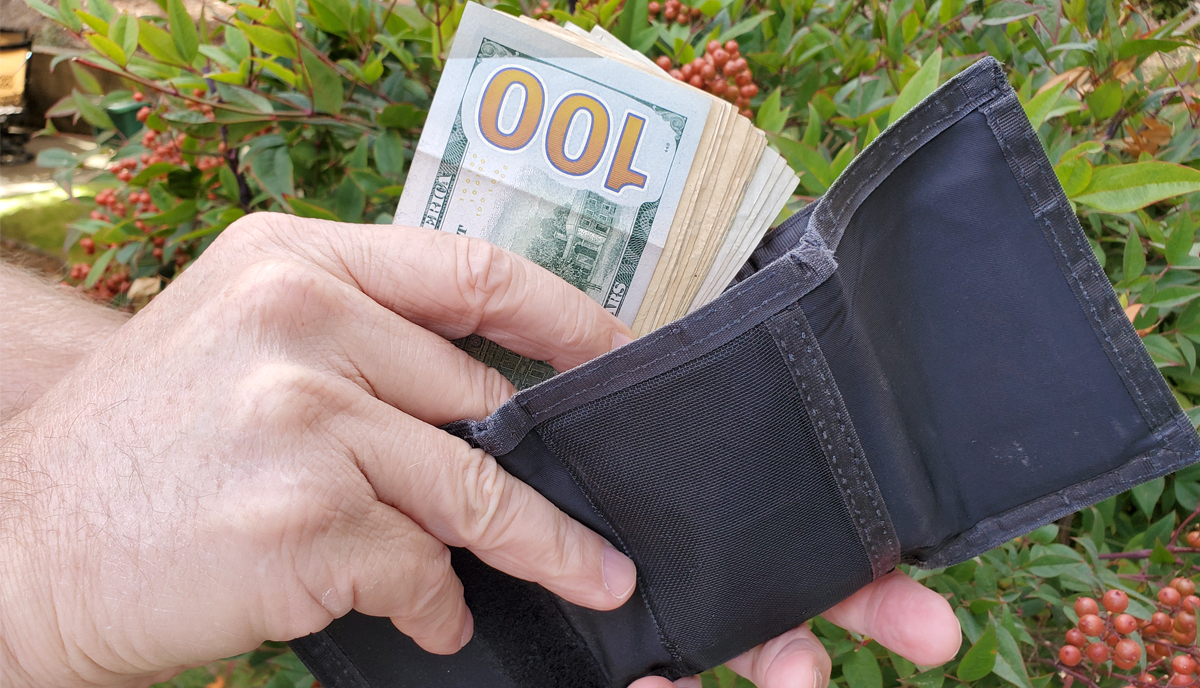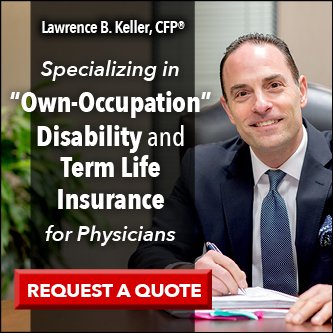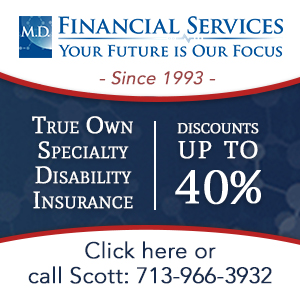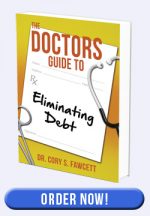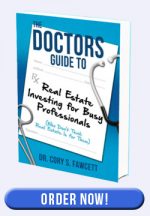(Keep an eye out for my new book The Doctors Guide to Navigating a Financial Crisis, coming soon)
Last Monday my talk on The Leverage and Growth Virtual Summit for Physicians was made available. My discussion is on how I got started in real estate investing, which now produces enough cash flow to fund my retirement. If you did not register and attend the Summit for FREE, you still have time. Register for FREE by clicking here before the conference ends on May 22nd.
After my talk was released, the first comment about my talk was as follows:
“Great talk, thank you! Wondering what kind of cash flow
you are looking at in a property….”
I get that question a lot. It is no secret, especially if you read my book The Doctors Guide to Real Estate Investing for Busy Professionals, that my number one criteria for purchasing a real estate investment is it must produce a positive cash flow. Investors want to hear a magic number for minimum cash flow. After all, there must be a cash flow number that will dictate whether the deal is good, if it is above this number or bad, if it is below.
That magic number is zero! If the cash flow is greater than zero, you have a positive cash flow. You could own as many greater than zero cash flow properties as you want. If the number is less than zero, you have a negative cash flow. You will need to put money into the investment every month to keep it afloat. You can only own a few of these before you go broke. Do not buy “investments” that take money away from you each month. (This is why your personal home is not an investment, but an expense)
The higher the cash flow is above zero, the better off you will be, the more cushion you will have in an economic down turn, and the closer you are to financial independence. The lower the cash flow is below zero, the faster you become broke. Only you can decide how much above zero you want the cash flow to be before you are willing to make the deal.
Let’s pause a moment to define cash flow. Cash flow is all the income minus all the expenses, including the mortgage and any savings for future expenses such as saving 1/12 of the property tax bill each month. It is the money you don’t have earmarked for something already. It is the money you can take out of the company and spend on yourself.
For me, $100 a month was enough cash flow to buy a property with no money down and get it into my portfolio. The great thing about the cash flow is it should only get better. Over time, as you pay down your mortgage and retire a loan or refinance a loan, your cash flow will increase. Over time the rent you collect will be increasing. I raise the rent almost every time a new tenant moves in.
The combination of rent raises and the mortgage pay down creates a steady increase in cash flow. Eventually the mortgage is paid off and the cash flow equals the net operating income minus savings for future expenses.
The size of the positive cash flow in the beginning is not the key factor. The key is the cash flow potential in the future of a property you now control. As the cash flow increases with time, the property will also be producing other advantages. One of those advantages, besides the ability to write off business expenses, etc. is the steady rise in appreciation, the value of the property.
Imagine looking back to the 1970s. If you bought a single-family home at that time for $30,000, and you put this 1970s home into your portfolio with a positive cash flow, today you would have a paid off house worth $300,000. If your purchase is in one of the high cost of living areas, it now could be worth over a million dollars. Along the way you also collected a growing positive cash flow that was mostly sheltered from taxes by depreciation.
Let’s look at an example of my first purchase of a 31-unit apartment complex, which is detailed in my book. My initial cash flow calculations had the property at a very small positive number using 100% financing, which is a great return on my $0.00 investment. I bought the property in the middle of the tax year so the first full tax year, months 6-18 of ownership, the cash flow was $22,214. The first six months of that year my wife and I did all the work, everything! Had we hired management, the cash flow would have been close to zero. Many would say they would not have invested in a property with such a low cash flow. If you think short term, that might be true. But once it is in your portfolio then all the growth is attributed in your favor.
We purchased the property with 100% financing (no money down) in 2001 for $1,150,000. That means the initial equity was zero. As of the end of 2019, this property was valued by the county at $2,464,264. At that time we still owed $577,737, making the equity $1,886,527. (The property value was actually higher than that as sales prices in the area exceed the county real market value).
Although the cash flow started low, it has been climbing through the years and I have collected $1,085,088 in cash flow through the end of 2019, more than half of that was tax free. We no longer manage the property, but I was the manager for about 12 years and after the first year, that took about 10-15 hours a month of my time.
If you add the equity to the total cash flow collected, we have had a benefit of $2,971,615 so far. I think that is a pretty good result. I started maxing out my retirement plan about 12 years before I bought this piece of real estate and I stopped contributing to my retirement plan six years ago. Currently, the property total benefits of accumulated appreciation and cash flow exceeds my retirement plans value. The cash flow from this one property exceeds what I would get if I withdrew 4% a year from my retirement plans.
As long as you think long term with your real estate investing, then any positive cash flow is fine to begin with. It will grow through out time and will likely make you a lot of money over the long haul. So, don’t get caught up with finding the magic cash flow number. Whatever positive cash flow number will let you sleep at night is the minimum cash flow the property you purchase needs to supply.

